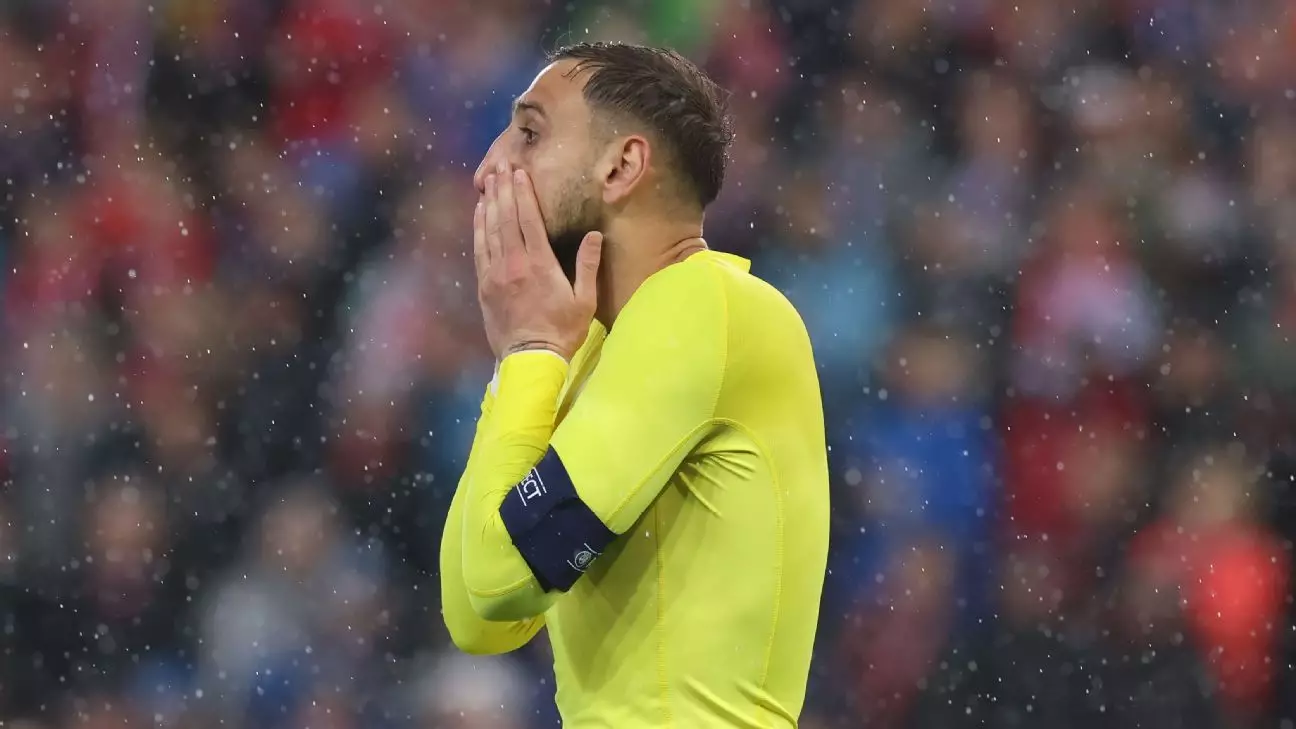In the annals of football history, Italy has long been celebrated as one of the sport’s heavyweight champions, boasting four illustrious World Cup titles. However, the current narrative surrounding Italian football paints a sobering picture; one that was vividly highlighted during their recent 3-0 drubbing by Norway in Oslo. As the nation grapples with a failure to qualify for the World Cup since 2014, it’s evident that a deeper introspection is necessary. This is not simply a case of poor performance; it is a troubling trend that reveals the fragility of a team once revered for its tactical prowess and resilient spirit.
Voices of Discontent: Player and Coach Perspectives
Gianluigi Donnarumma, Italy’s goalkeeper and a stalwart figure in their defensive line, did not mince words following the match. Describing the performance as “not acceptable,” he called for collective accountability among players and emphasized the need for unity. It’s refreshing to see a player of his caliber openly acknowledge the dire state of affairs. His candid remarks go beyond rhetoric; they are a resounding wake-up call for a team languishing in mediocrity. Similarly, coach Luciano Spalletti articulated the pressing need for enthusiasm and determination, recognizing that the team’s trajectory requires urgent adjustment.
Spalletti’s commentary reflects the inherent responsibility associated with managerial roles, particularly in a footballing nation that values success above all else. The coach’s admission of the need for conversations with the Italian Football Federation (FIGC) about their future strategies underscores a critical juncture for the national team. If there is anything to take away from Spalletti’s insights, it is that complacency cannot be afforded in this perilous period.
The Tactical Shortcomings: A Call for Revolution
The manner in which Italy conceded goals against Norway exposed glaring tactical shortcomings. Often outpaced and outmaneuvered on the counter-attack, the Azzurri’s defense resembled something reminiscent of a disjointed amateur side rather than a national team that has historically prided itself on defensive tenacity. This begs the question: where is the innovative strategy that once set Italy apart? The lack of a cohesive tactical framework signals an urgent need for evolution within the coaching staff and perhaps a reevaluation of player selections.
The broader footballing community recognizes that talent alone is insufficient. The defensive lapses and missed opportunities consistently manifested during the match speak to a broader malaise affecting Italian football. These aren’t merely technical errors; they signify a profound lack of confidence among players who have the capability to excel. It is essential to instill a revitalized sense of belief, for without it, winning becomes a far-fetched dream.
Time for a Cultural Reawakening
What is particularly sobering about Italy’s plight is that it isn’t confined to tactical deficiencies or managerial choices. It reflects a cultural stagnation within a footballing world that is ever-evolving. Italian football has a rich legacy built on tactical sophistication, disciplined gameplay, and a collective identity that unified players and fans alike. Today, however, that sense of identity appears lost amid underwhelming performances and escalating disappointment.
To reverse this trajectory, Italy must prioritize elements beyond the field—mentorship, grassroots development, and renewed investment in youth initiatives. The country’s football academies must cultivate not just skills, but the ethos of teamwork and perseverance that historically defined Italian football. The question remains: are stakeholders willing to commit to long-term strategies that may not yield immediate results but are essential for restoring Italy’s footballing prestige?
As Italy’s national team faces pressure to perform, the challenges before them are daunting. However, if passion and purpose infuse the footballing community, the scars of recent failures can be transformed into the motivation needed for a renaissance. A renewed focus on unity, accountability, and innovative tactics could usher in a new era for Italian football—one where the proud tradition of the Azzurri flourishes once more.

